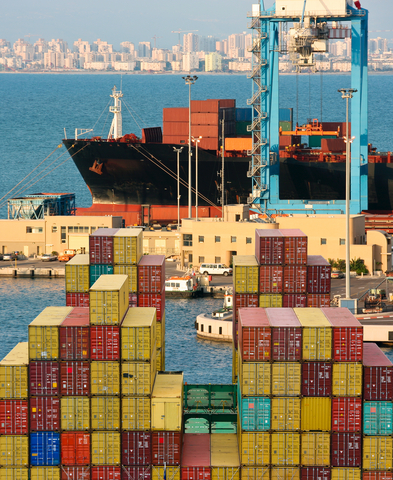Can Anyone Be a Freight Forwarder?
Ah, the age-old question: Can anyone be a freight forwarder?
 Okay, maybe not age-old,
Okay, maybe not age-old,
but the question caught my attention and caused me to read a blog on ShippingandFreightResource.com.
The blog asked the question, “Can anyone become a freight forwarder..??” and answered it, “Practically the answer is yes.”
I heard it said once that anyone with a phone and internet connection can be a freight forwarder.
Personally, I wouldn’t trust my imports or exports to someone whose qualifications as a freight forwarder are a phone and internet connection.
The Shipping and Freight Resource blog defined a freight forwarder as follows:
A Freight Forwarder is someone who undertakes to handle the movement of goods from point to point on behalf of the cargo owner.
The essence of freight forwarding is to ensure that the cargo is picked up from the seller and delivered to the buyer at the required place, at the right price and in the same condition that it is picked up from origin.
We actually have a blog that addresses the question of what a freight forwarder is which goes into more detail. As well as covering the important fact that freight forwarding deals with international shipping in its opening paragraph:
Freight forwarding is a service used by companies that deal in international or multi-national import and export. While the freight forwarder doesn’t actually move the freight itself, it acts as an intermediary between the client and various transportation services.
When I first started working at Universal Cargo Management, I trained in the sales department and even handled some leads–which was very helpful in learning about how freight forwarding and the international shipping industry works to give me better perspective for content creation in this industry.

During that time, I fielded a few calls from people calling for free freight rates who were starting their own “freight forwarding” or “shipping company.” Their plan was to find customers, get a quote from UCM, mark the price up, and have us handle the shipments.
One of the two biggest reasons a shipper needs a freight forwarder to handle their imports and exports is because the big shipping companies, the carriers and shipping lines, don’t deal directly with small to medium sized shippers. They have contracts with the large shippers like Wal-Mart, but for the rest, a freight forwarder is needed to negotiate the importing or exporting of a shipping container.
Reputable freight forwarders like Universal Cargo Management have contracts with carriers as well as working within the spot rate market and work hard to get the best possible freight rates they can for shippers they work with.
People creating companies to deal with the freight forwarder who deals with the carrier…?
It reminds me of a game I used to play with my sister when we were kids called Six Degrees of Kevin Bacon. You’d pick an actor or actress and then name another actor or actress they performed with, then someone they performed with, until you got to Kevin Bacon. Sometimes we’d overcomplicate it, going through several degrees of separation when there’s a movie both the original actor and Kevin Bacon acted in together!
A “freight forwarder” to deal with a freight forwarder who deals with a carrier is too many degrees of separation!
The other reason the average shipper needs a freight forwarder is because international shipping is complicated.
Someone whose qualifications for being a freight forwarder is a phone and an internet connection doesn’t have the necessary knowledge to make sure your imports and exports go smoothly as possible.
That Shipping and Freight Resource blog that inspired this whole blog lists the following as the capabilities of a freight forwarder:
- experienced in all modes of transportation – road, rail, air and sea
- store the cargo belonging to the clients at their warehouse (usually all big forwarders have their own warehouses)
- arrange the distribution or “forwarding” of the cargo as per the instructions of their client
- negotiate freight rates with the shipping line
- book the cargo with the shipping line as per the requirement of the client
- prepare bills of lading and associated shipping/negotiating documentation (Eur1, Certificate of Origin, etc)
- issue approved house bill of lading (House bill of lading)
That’s really a pretty generalized list of what a freight forwarder does and is just the tip of the iceburg.
If complications arise, as sometimes do in international shipping, you’ll need a freight forwarder with the experience and know-how to handle it. In fact, a so called “freight forwarder” who thinks international shipping could be a good way to make a fast buck may very well create the complications by simply not handling the bill of lading or other paperwork correctly.
Having shipping containers held up in customs costs time and money. That’s the last thing you need to have happen as a shipper.
International shipping is a complicated and even difficult industry. Someone trying to be a freight forwarder without knowing what they’re doing won’t last very long.
So, no, not anyone can be a freight forwarder.
In the next blog, we’ll look at how to choose a good freight forwarder.


Hi! Do i need any license or permit for TSA or other government agency if i want to set up the air cargo freight forwarding company in USA?